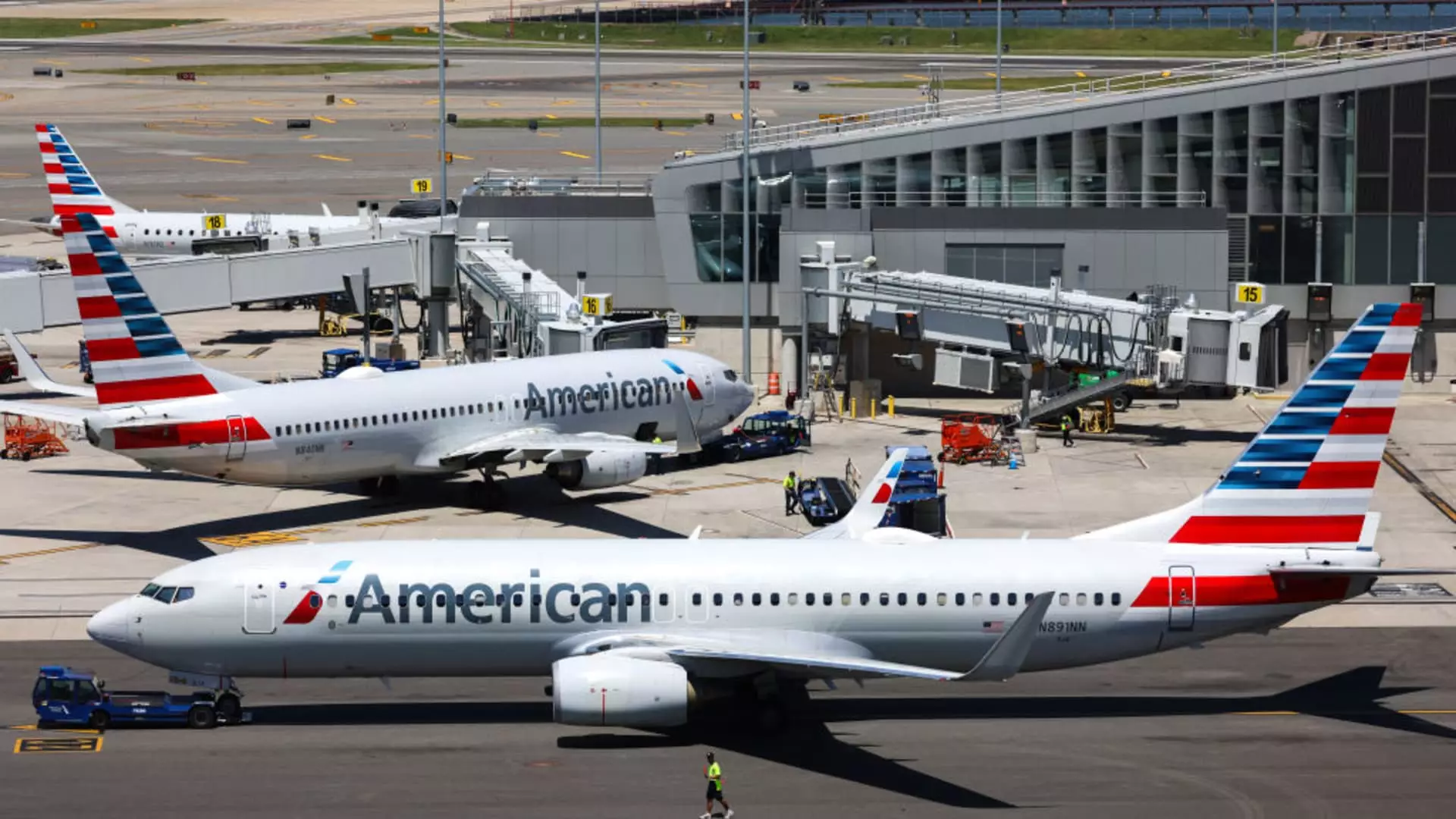In an intriguing twist within the airline and financial sectors, American Airlines is reportedly negotiating to designate Citigroup as its sole credit card partner, transitioning away from Barclays, its previous collaborator since the merger with US Airways in 2013. This move signifies more than just a gain or loss for the banks involved; it reflects a broader trend in loyalty programs and consumer finance strategies that have accelerated over the past few years.
American Airlines is currently engaged in discussions to solidify a long-term agreement with Citigroup that would streamline its co-brand credit card operations. By forging a singular partnership, American aims to enhance the profitability of its loyalty program by maximizing revenue from customer transactions. Such arrangements have been fiercely competitive within the banking and airline industries, evidencing a landscape where substantial financial incentives drive these partnerships. The potential agreement underscores a significant pivot in how airlines harness credit card partnerships to bolster revenue amid fluctuating travel demands.
Historically, co-branded partnerships between banks and airlines have demonstrated lucrative outcomes, potentially earning both parties billions through customer loyalty programs. However, the underlying complexity of these agreements cannot be overstated. Both parties must navigate details ranging from revenue sharing on interest fees to risk assessments. In recent years, there has been an observable trend as airlines negotiate for greater financial returns from their credit card agreements while banks respond with heightened caution due to profitability pressures and regulatory scrutiny.
The necessity of robust credit card partnerships has never been clearer than during the COVID-19 pandemic. As global travel ground to a halt, American Airlines and its peers relied heavily on credit card revenue streams while awaiting the revival of air travel. For American Airlines, the relationship with its banking partners has provided a cushion—earning significant returns from co-branded card programs while passenger income stalled. Despite American touting its own loyalty program, which is purported to be the largest, the airline still trails behind Delta, which generated nearly $7 billion in revenue from its partnership with American Express. Such financial comparisons stir the competitive spirit within American Airlines, further motivating its negotiations with Citigroup.
During these negotiations, it’s important to note that regulatory approval will be necessary for any finalized agreement between American Airlines and Citigroup, adding another layer of complexity to the potential partnership. There is a possibility that federal regulators might voice objections that could interfere with the transition, leaving the established partnership with Barclays intact. Historically, airlines have managed multiple credit card partnerships, but the current trend is to consolidate for efficiency and improved profitability.
Under the leadership of CEO Jane Fraser since 2021, Citigroup has carved a niche in partnership deals that offer a more lucrative customer base compared to its counterpart. By focusing on customers who exhibit higher spending patterns and lower default risks, Citigroup is well-positioned to capitalize on the potential agreement with American Airlines. The anticipated renewal contract is projected to span seven to ten years, a strategic timeframe that allows for recovery of investment and adjusts to the evolving demands of the market.
Citigroup’s strategy reflects a broader ambition to elevate its card offerings and create win-win solutions that drive revenue and enhance customer experience. As the company navigates through negotiations, its spokesperson emphasized the collaborative nature of partnerships that aim to enrich customer benefits. This aligns with a prevailing notion in the finance sector where enhancing customer loyalty is paramount to sustained profitability.
On the flip side, Barclays has acknowledged the challenges posed by operating in the airline credit card space. Earlier this year, executives indicated plans to diversify their co-branded card portfolio away from airlines. By forging new partnerships with various retailers and technology firms, Barclays seeks to mitigate risks associated with relying heavily on a single industry—airline co-brand contracts. This pivot reflects the volatility and uncertainty of profit margins in the airline sector and highlights a strategic reshaping of business priorities in response to an evolving marketplace.
As the landscape of airline loyalty programs continues to evolve, American Airlines’ negotiations with Citigroup represent a pivotal moment in the reshaping of credit card partnerships within the industry. The potential consolidation with Citigroup may yield substantial financial benefits and customer engagement solutions, while it simultaneously poses challenges for Barclays to find its footing in a rapidly transforming market. The implications of these negotiations are far-reaching, signaling a transformative phase for not only American Airlines but the broader dynamics between airlines and their financial partners. As all parties work towards finalizing agreements, much will depend on regulatory insights and market responsiveness, shaping the next chapter in loyalty program strategies.

